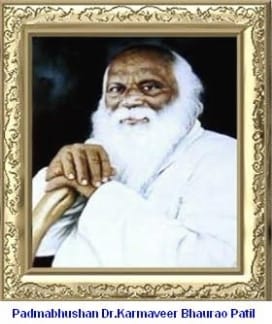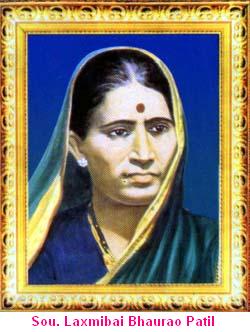The National Service Scheme is primarily stands for channelizing the student’s youth for building the nation. The youth in all ages has been in the vanguard of progress and social change, thirst for freedom, impatience for quicker pace of progress and a passion for innovation, coupled with idealism and creative fervour, saw the youth in the forefront of the freedom struggle in our own land. If our youth was inspired by the call of the Father of the Nation in the first half of this century, the youth of today faces the challenge of economic development and technological progress with social justice.
Ever since after independence there has been growing awareness of the desirability of involving students in National Service. The first Education Commission (1950) recommended the introduction of national service by students on a voluntary basis. Subsequently on the basis of suggestion made by the then Prime Minister pt. Nehru, a committee was appointed under the chairmanship pf Dr. C D Deshmukh to prepare a scheme for compulsory national service by youth in several countries, recommended that national service may be introduced on a voluntary basis. A similar recommendation was made by the Education Commission appointed under the Chairmanship of Dr. D S Kothari.
In April 1967, the Conference of State Education Ministers recommended that at the University stage, students could be permitted to join the national Cadet Corps which was already in existence on a voluntary basis and an alternative to this could be offered to them in the form of a new programme called the National service Scheme (NSS). Promising sportsmen, however, should be exempted from both and allowed to join another scheme called National Sports Organization (NSO), in view of the need to give priority to the development of sports and athletics.
The conference of Vice-Chancellors in September 1967 welcomed this recommendation and suggested that a social committee of Vice Chancellors should be sent up to examine this question in detail. The details were soon worked out and the planning Commission sanctioned on outlay of Rs. 5 crore for developing the NSS during the 4th Five Year Plan as a pilot project in selected institution and universities. In pursuance of these recommendations, the Ministry of Education introduced National Service Scheme during 1969-70. The choice of the timing of its introduction was remarkably auspicious as 1969 was the birth centenary year of Mahatma Gandhi, the father of Nation to whom social service was almost a religion.
The response of students to the scheme has been excellent. Starting with an enrolment of 40,000 students in 1969, the coverage of NSS students has increased every year. Now the strength of NSS is 27% of the total student population in the country.
The scheme now extends to all the states and universities in the country. Students, teachers, parents, guardians, persons in authority in government, universities and colleges and the people in general now realize the need and significance of NSS. It has aroused among the students and youth an awareness of the realities of life, a better understanding and appreciation of the problems of the people. NSS is, thus a concrete attempt in making education relevant to the needs of the society
Aim :
- Personality Development of students through community service.
Objectives :
- The broad objectives of NSS are to
- Understand the community in which they work;
- Understand themselves in relation to their community;
- Identify the needs and problems of the community and involve them in problem solving process;
- Develop among themselves a sense of social and civic responsibility;
- Utilize their knowledge in finding practical solution to individual and community problems;
- Develop competence required for group-living and sharing of responsibilities;
- Gain skills in mobilizing community participation;
- Acquire leadership qualities and democratic attitude;
- Develop capacity to meet emergencies and natural disaster and Practise national integration and social harmony.
National service scheme committee:
| Sr.No. | Name of staff | Position |
| 1. | Dr.Revaje V.A | Programme Officer |
| 2. | Dr.Shinde A.D | Programme Officer |
| 3. | Shri.Bhurke N.S | Programme Officer |
| 4. | Smt.Taboli N.A | Member |
| 5. | Smt.Kendre S.K | Member |
| 6. | Smt.Sapatnekar V.V | Member |
| 7. | Smt.Cholle I.S | Member |
| 8. | More S.B | Member |
Organisation Structure of NSS

Regular Activities :
NSS volunteer undertake various activities in campus adopted, villages and slumps for community service. Duration of these service is 120 hours ie. 20 hours for orientation of NSS volunteers, 30 hours for campus work and 70 hours for community service. In regular NSS programmes students undertake various activities in the college campuses, adopted villages, cities and slums during weekends. Adoption of a village or an area is a meaningful programme in NSS.
Special Programmes :
Special Camping Programme is a camp of ten days duration in adopted places and it provides unique opportunities to the students for group living, collective experience sharing, sharing responsibilities, addressing various developmental issues of regional and national importance and constant interaction with the community. 50 percentage NSS volunteers are expected to participate in these camps.
Finance and Accounts :
An amount of Rs.225/- per volunteer per annum is enmarked for expenditure on regular activities. Under the special camping programme a provision of Rs.450/- per volunteer is made for the special comp. These expenses are mainly for boarding ,lodging and transport of the volunteers.
Brief report of NSS Activities :
1. World Population Day Awareness Rally
2. World AIDS Day Awareness Rally
3. Blood Donation Camps
4. Health Check up Camps
5. Awareness programme for Voters
6. Environmental Awareness programme
7. Cleaning of Campus
8. Personality Development Programme
9. Eradication of Tobacco and Superstition programme
10. Swachha Bharat Abhiyan
11. Tree Plantation
12. Organ Donation programme
13. Awareness about Water Management
14. Birth and Death Anniversaries of Indian Leaders
15. Vittiya Saksharta Abhiyan
16. Disaster Management Awareness programme
Special Camps organized at the villages:
1. A/P Chandan Nagar, Lamboti, Tal. Mohol. Dist. Solapur (2012-13)
2. A/P Haglur, Tal. North Solapur Dist. Solapur (2013-14)
3. A/P Sawaleshwar Tal. Mohol. Dist. Solapur (2014-15)
4. A/P Chandan Nagar, Lamboti, Tal. Mohol. Dist. Solapur (2015-16)
5. Modikhana, Sat Rasta Parisar, Solapur (2016-17)
Awards and Achievements:
1. Rasta Suraksha Abhiyan Puraskar by Govt. of Maharashtra
2. Jagar Janivancha Abhiyan Puraskar by Govt. of Maharashtra
3. Vittiya Saksharta Abhiyan Puraskar by UGC and Govt. Of India
4. State level Best NSS Programme Officer Award by Govt. of Maharashtra
5. Best College NSS Unit Award by Solapur University
6. Best NSS Programme Officer Award by Solapur University
7. Best NSS Volunteer Award by Solapur University
8. Swaccha College Award by Solapur Municipal Corporation
Participation of Volunteers in National /state/District level camps:
| Sr.No. | Year | Uni. Level | Dist. Level | State Level | National Level | Other Camps |
| 1. | 2012-13 | |||||
| 2. | 2013-14 | |||||
| 3. | 2014-15 | |||||
| 4. | 2015-16 | |||||
| 5. | 2016-17 | |||||
| 6. | 2017-18 |
Photo Gallery

















